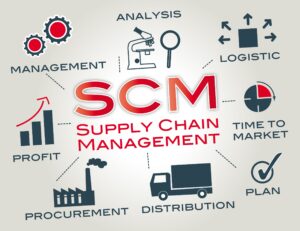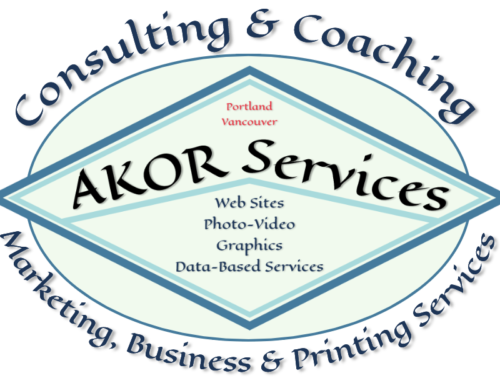 Tough Questions Every Business Should Be Asking in 2022
Tough Questions Every Business Should Be Asking in 2022
If you missed my recent article “My Top Marketing Recommendations for 2022“, you may wish to check it out here. That includes some good ideas for strategizing your marketing that are somewhat non-standard, which I believe will produce good fruits in 2022. In that article, I was firmly wearing my Marketing hat.
Clearly businesses have been changing as long as there have been business around. But in my lifetime I have never seen the need to change as rapidly as has been necessary since the pandemic began. 2022 appears to be full of changes as well as I am writing this in early February 2022. It is possible that the end of the pandemic may finally be on the horizon, but it has opened a lot of eyes about the need for changes to be made in business.
In this article, I want to switch things up a bit. You saw the graphic for “Q&A”. But what we are really looking at today are just the “Q’s”. My goal won’t be to answer the questions in this venue. This time, my goal is to simply to ask the questions that I believe will be relevant in 2022. My e-mails primarily go to business owners and managers (of many different company sizes). I want to ask the questions with the hope of opening up dialogs for the teams in order to be better prepared for what this year may bring. Of course I am always available to enter into those conversations with you.
The questions I will pose will generally be grouped under the headings of Business (General) and Inventory/Supply Management.
General Business Questions
I won’t be venturing into politics here. I will say that the pandemic and the current political and social climates, local, state, federal and global, have been rocking the business world. Policy and public opinion via “influencers” are reshaping everything business has known to be true over the years. The internet has forever changed the way we source information, shop and have product delivered. Mainstay businesses are disappearing, and new ones that are optimized for this new world are thriving. Brick and mortar businesses are disappearing at an alarming rate. Office space sits empty, and many people find themselves adapting to this new reality by working from their home offices more than ever before. The labor pool is changing dramatically. Currencies are in flux and the stock market varies wildly from day to day, being influenced by new players that were not on the radar 10 years ago. Political upheaval and social unrest and demonstration are rocking major cities across the United States and throughout the world. This is about asking the questions, opening conversations and developing strategies that will help our businesses adapt now, and in the future. So many businesses have seen how all this unrest and change can and does change our businesses in the blink of an eye. What do we, as business owners, do about it? It’s clear that it is no longer business as usual. We change, adapt or disappear. And, we need to do it quickly. It’s all about planning and thinking through what your business looks like now, and what it will look like tomorrow, moving forward. That’s why I am suggesting you consider these questions. Again, there are many business sizes and type that may be reading this, so there is no one size fits all answer to these questions.
- Is my business optimized to take advantage of this wildly changing business environment?
- Is my business trend growing or contracting?
- Are my products and services still in demand? Do I have the right mix?
- How do I reach potential customers? Is my approach the same today as it was years ago?
- Like the stock market, businesses expand and contract. A business is not necessarily growing every year, year after year, or at least at the same rate. Is my business infrastructure sized appropriately for the current and projected future business climate? Am I kingdom-building, or is my business lean and correctly-sized?
- Do I have a good, current idea of my competition and how they operate? Their pricing and their services? Was the last time you seriously reviewed this information years ago?
- What new technologies are affecting my business, my products and services? (Even the software and technology you use!)
- Attracting, training and retaining quality employees is hard. How is all that changing in today’s business climate? How can my business change to embrace this changing business climate?
- Business Finances: Is now the time to invest, upgrade or should I be hanging on to my cash positions? What about my business inventory?
- Is my business up/down because customers are either spending on my products and services based on fear of the current climate, and am I poised for change when the current climate changes again, either for the better or worse?
- How will outside policies and laws affect my business both now and in the future?
- Have I adjusted my marketing plans to account for all of these business decisions? Plan your work, and work your plans.
Inventory/Supply Chain Management.
 This deserves its own category of questions. I spent over 20 years of my career as a Purchasing professional at the Director level for multi million dollar companies, managing million dollar + inventories prior to becoming a consultant. In my entire lifetime I have never witnessed the disruption of the supply chain and inventory supply that we are experiencing today. Yes, there have been fluctuations over the years. Again, no politics here. This one area threatens all businesses and consumers in an unprecedented way that has not been seen since the great depression. This one deserves your attention, consideration and your pre-planning. The only way to completely insulate your business from this problem is through controlling your ENTIRE SUPPLY CHAIN, from growing/manufacturing the raw materials, controlling production, storage, transportation/distribution, pricing and sales. You have to control it all from cradle to grave, so to speak. Most business cannot do that. This needs to temper your thoughts and conversations. This one area completely controls everything else you are able to do in business. It is that serious.
This deserves its own category of questions. I spent over 20 years of my career as a Purchasing professional at the Director level for multi million dollar companies, managing million dollar + inventories prior to becoming a consultant. In my entire lifetime I have never witnessed the disruption of the supply chain and inventory supply that we are experiencing today. Yes, there have been fluctuations over the years. Again, no politics here. This one area threatens all businesses and consumers in an unprecedented way that has not been seen since the great depression. This one deserves your attention, consideration and your pre-planning. The only way to completely insulate your business from this problem is through controlling your ENTIRE SUPPLY CHAIN, from growing/manufacturing the raw materials, controlling production, storage, transportation/distribution, pricing and sales. You have to control it all from cradle to grave, so to speak. Most business cannot do that. This needs to temper your thoughts and conversations. This one area completely controls everything else you are able to do in business. It is that serious.
- If my primary supplier(s) were to become unable to supply my business tomorrow, what is my backup plan? What if THEY go out of business? What if they fall behind in their production? What agreements/contracts do I have with your primary suppliers?
- If I had to use secondary suppliers, how will that affect my quality, pricing and sales?
- Will I be passing along potentially regular or large price increases to my customers, will I eat those increases and will my customers accept it? How will that affect our sales? How will I manage that?
- What potential strategies do I have in place for managing problematic inventory and supply chain issues that will allow us to remain in business, and to provide for my employees and customers? Can I afford to build inventories now and secure my products and fix my costs?
- If normal trucking/transportation chains are broken, how will that affect my business, and what is my backup plan?
- Cost controls: Have I included the costs of storage (facilities), insurance and the costs associated with borrowing/credit/loss of interest from cash savings into our base inventory costs? These are real costs.
- What if the governing authorities regulate my business activities or assume controls that affect my inventories or cause problems in my supply chain? Do I have the proper contingency plans in place?
- I are importing/exporting and have seen major ports (like the ports of Portland and Seattle) backed up for days/weeks/months with ships just moored in the harbors waiting to be unloaded, caused by the lack of union labor and trucking. Getting your containers unloaded is even an issue. Am I accounting for those costs as well? What tactics will my business use (and adjust) to cope with this major supply chain problem?
- If my main suppliers come from imports, how have the politics and rules from that country affected my business? How should I cope with those issues?
- Like the computer chip shortages that have hampered the auto manufacturing industry and created major supply and demand problems, what issues do I see in my industry that will affect my business, and what plans do I have in place to address these issues?
- If governmental policy issues have caused major issues for my business, how will I address those issues? What specific actions will I take?
These are only a few key questions. There is much more to talk about. I believe having good plans in place prior to experiencing real problems will be one key to success in 2022. You can never know with 100% certainty what direction problems will attack you in business. Pre-planning and adaptability are key to lessening those blows when they do come. Pre-planning was fundamental to my business success over the years.
I believe that taking control of your business’s destiny will be key in 2022 in order to secure the future of all of our businesses. Be sure to have your teams aligned and pulling in the right directions. Those teams include your employees, suppliers, consultants and elected officials. It takes a village of people to be successful in business these days. It takes many skills and disciplines. No one person can do it all. Be sure to use every resource you have at your disposal to become and remain successful.
If you find this information useful and thought provoking, please feel free to link it to anyone that you think might find it useful.
As always, I am available to work on your behalf and have more dialogs about any of these topics and more.
Allen Beck, AKOR Services
(503) 427-8553, Allen@akorservices.com
Copyrights 2022, All Rights Reserved.




